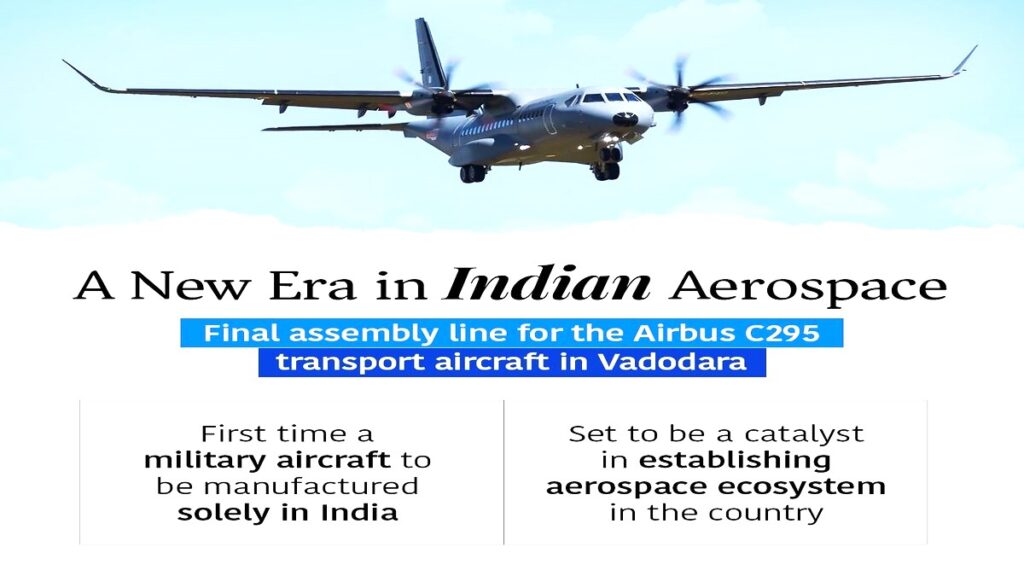The Vision Behind “Make in India”
Since Prime Minister Narendra Modi took office in 2014, his government has embarked on an ambitious journey to redefine India’s manufacturing landscape, encapsulated in the “Make in India” initiative. This campaign aimed not just at bolstering domestic production but also at instilling a sense of self-reliance, particularly in the defence sector. Modi’s belief was clear: a nation as vast as India cannot solely depend on imports to meet its defence needs, especially given the shifting dynamics of global geopolitics.
Coupled with the “Atmanirbhar Bharat” (Self-reliant India) philosophy, this vision faced skepticism from political rivals who dismissed it as unrealistic. They mocked the initiative’s lion logo and expressed doubts about the feasibility of a robust domestic defence industry. However, what they failed to recognize was Modi’s relentless drive to inspire an aspirational India, encouraging citizens and industries alike to “think big, dream big.”
India's self-reliance in defence sector takes a whole new flight with PM @NarendraModi ji inaugurating our first military aircraft manufacturing plant in Gujarat!#C295MadeInIndia will strengthen our national security while also greatly boosting local industry! pic.twitter.com/nkmNHESyUm
— Jagdish Makwana (@JagdishMakwana_) October 28, 2024A Historic Inauguration
The narrative of India’s burgeoning defence capabilities took a significant turn recently with the inauguration of the Tata-Airbus C-295 facility in Vadodara, Gujarat. This landmark event, attended by both Prime Ministers Modi and Pedro Sanchez of Spain, marked the opening of India’s first private facility dedicated to manufacturing military aircraft. The C-295 project represents a pivotal step toward enhancing India’s self-reliance in defence, as it will be the first instance of a military aircraft being produced by a private company on Indian soil.
Under this ambitious project, over 18,000 components will be sourced locally, ensuring that the manufacturing process is rooted in India. Out of the 56 C-295 aircraft designated for the Indian Air Force (IAF), 16 will be delivered directly from Airbus’s facility in Spain, while the remaining 40 will be produced in India. The first locally manufactured aircraft is set to roll out in 2026, with full delivery expected by 2031, replacing the ageing Avro-748 fleet that has been in service since the 1960s.

The Significance of Self-Reliance
The C-295 project is more than just a manufacturing initiative; it symbolizes a larger commitment to developing a robust, self-reliant security infrastructure, deemed essential for India’s economic prosperity and sustainability. The government’s push for domestic defence production has already shown promising results. For instance:
In 2019, India made its debut on the global arms export stage, ranking 23rd among the top 25 arms exporters, according to the Stockholm International Peace Research Institute (SIPRI). The country aims to achieve defence exports worth ₹35,000 crore by 2025.
The proportion of defence spending allocated to foreign procurement has dropped from 46% in 2018-19 to 36.7% by December 2022, reflecting a solid commitment to indigenous production.
Defence exports surged from ₹686 crore in 2013-14 to a staggering ₹21,083 crore in 2023-24, indicating a growing trust in Indian-made military products across over 100 countries.
The defence budget has significantly increased from ₹2.03 lakh crore in 2013-14 to ₹5.93 lakh crore in 2023-24, facilitating modernisation and contributing to record defence production outputs.
The C-295: A Technological Marvel
The C-295MW aircraft is designed for tactical transport, with a capacity ranging from 5 to 10 tonnes and a maximum speed of 480 km/h. Notably, it features a rear ramp door that allows for quick troop and cargo deployment, making it ideal for operations in challenging terrains. Its design enables short take-offs and landings from semi-prepared airstrips, enhancing its operational versatility.
With a cabin length of 12.7 meters (41 feet 8 inches), the C-295 boasts the longest unobstructed cabin in its class, accommodating up to 71 seats and allowing for efficient cargo handling. Each of the 56 aircraft will also be equipped with an indigenous electronic warfare suite, developed by Bharat Electronics Ltd and Bharat Dynamics Limited, underscoring the initiative’s commitment to domestic technological development.

A Global Player
Globally, the C-295 has demonstrated its capabilities across diverse terrains, from the Brazilian jungles and Colombian mountains to the deserts of Algeria and the frigid climates of Poland and Finland. The aircraft has been involved in various military operations, including missions in Chad, Iraq, and Afghanistan, showcasing its adaptability and reliability.
Its tactical versatility extends beyond troop transport. The C-295 can also perform casualty evacuations, conduct special missions, engage in disaster response, and carry out maritime patrol duties, further enhancing the operational scope of the Indian Air Force.
Nurturing Indigenous Innovation
The establishment of the C-295 assembly facility in Vadodara is just one part of a larger vision to foster indigenous innovation within India’s defence sector. The government has invested in two major defence industrial corridors in Tamil Nadu and Uttar Pradesh, attracting substantial investments aimed at creating a supportive ecosystem for defence production. Moreover, initiatives like the Innovations for Defence Excellence (iDEX) are fostering participation from over 400 startups and MSMEs, ensuring that innovation is at the heart of India’s defence strategy.

The inauguration of the Tata-Airbus C-295 facility represents a significant leap in India’s journey toward self-reliance in defence. It reflects a blend of political will, strategic foresight, and community engagement, paving the way for a future where India not only meets its own defence needs but also emerges as a key player in the global arms market. As India continues to build its indigenous capabilities, the dreams of a rising nation are increasingly becoming a reality, fostering a new era of strength and self-sufficiency.
Read More : Vijay’s Political Debut: A Veiled Critique of the DMK and a Vision for Tamil Nadu






